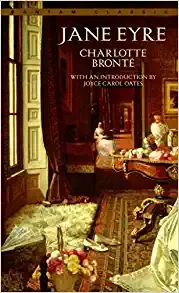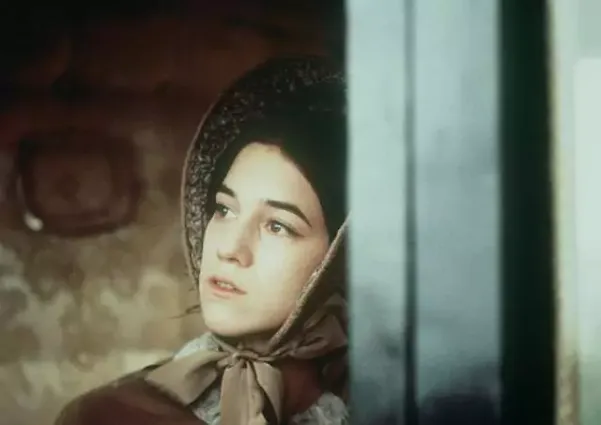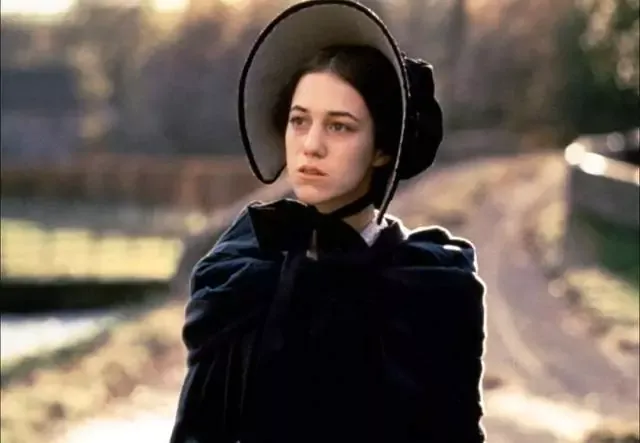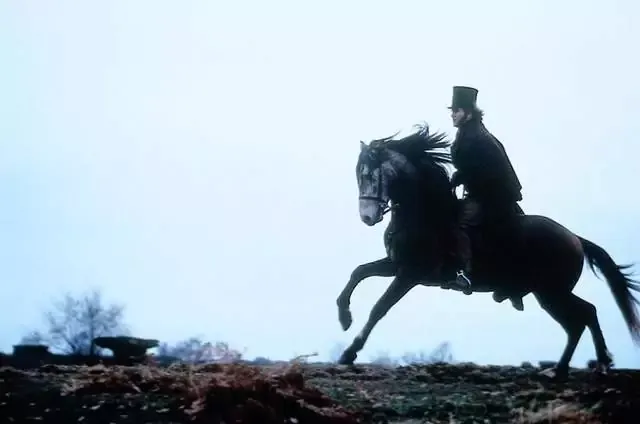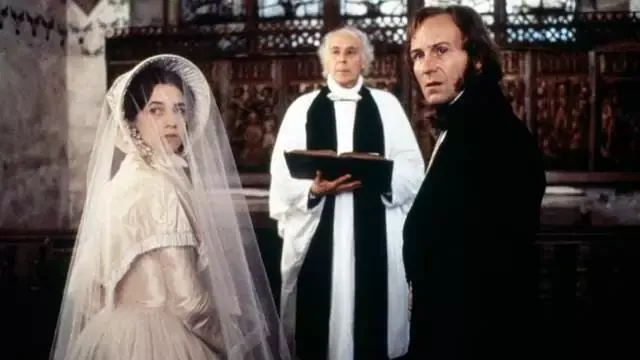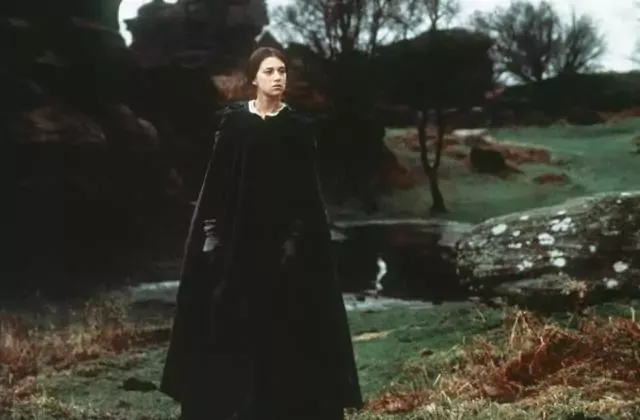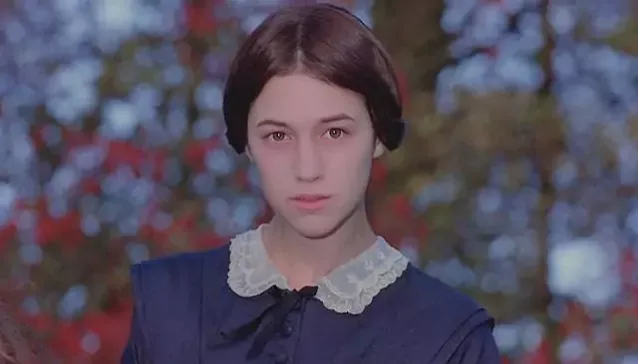Book Review and Analysis
It has to be said that this world-famous book, I have to say that things like this are really not suitable for the majority of people, but in the most fundamental sense, it is completely culturally inappropriate.
Moreover, the reason why world-famous books are unique and outstanding is that they have roots in historical and cultural backgrounds. However, if you leave those alone, reading classics is no different from reading popular ones.
People who don't know the culture of those periods read classics, even if you are 40 years old, you still won't make much progress.
Some [elderly people] like to ridicule something [a book that is such an esoteric masterpiece that cannot be read by children], and then these old people believe that when they grow up to a certain age they can read it, they read it, and then they say that good books and books are super It's really a touching book.
As a result, Barabara pulled a bunch of thoughts that I could pull out when I was 10 years old. What is the progress? Reading it or not really has nothing to do with age, what matters is experience. Even if you are 40 years old, you still have no education and you can read woolen yarn.
Therefore, the 30 years of some people who [children can't read, they can understand it when they grow up] can be regarded as a complete feeding of the dog in the past 30 years.
In the recent literature class, for the analysis of "Jane Eyre", none of them talked about [unswerving love], [stubborn character], [insisting on justice xx] these superficial character analyses.
The analysis of the passages I received in China is weak, such as a line that expresses the character of the character. This kind of thing is subjective and mentally retarded. But in fact, in addition to the obvious story content of the novel itself, there are many more interesting things.
I have seen many people’s comments saying that they were moved by this story. An ordinary girl was abused since she was a child. She grew up and met a wealthy man with a weird appearance and temperament. The two fell in love with each other, but they were killed in the middle. After leaving the mad wife hidden by the rich, the hostess left "angrily".
Later, I met a distant cousin and accidentally obtained a huge inheritance to become a rich man. Suddenly one day she went back and forth to her lover's manor, only to find that the building was empty.
The house had been burned by the mad wife, who fell to her death. The heroine's love is blind and lame, unable to take care of himself. Then the heroine and the heroine lived a happy life together.
Everyone is generally admiring the noble virtues of the heroine, and how immortal this unswerving love is. This is correct. But this is only a part of "Jane Eyre". Just such a storyline.
To be honest, many novels on the market now have more intricate plots than this, but why can't they surpass "Jane Eyre"? (Don't say that the older the book, the more valuable it is like wine...) I think that if the reader is only captured by this superficial plot, it is no different from reading popular novels on the market.
I also took a class about Jane Eyre in domestic literature classes. At that time, I remember what the teacher explained was that Jane Eyre is a perfect fusion of literature and popular fiction, with a unique story setting, and is no longer a love story between beautiful men, beauties, and nobles. To be right, Jane Eyre is a popular novel on the surface and is very popular among ordinary housewives.
The characters are all men and women, and happy endings or something. However, the setting of "Jane Eyre" is a love story between ordinary middle-class Jane Eyre and the declining rich man Mr. Rochester, who is not good-looking and has a bad personality. This is very unique in the popular novels at the time, and it is also very eye-catching.
But this is not just a popular novel. Next, I want to analyze why. Perhaps these things are also missing in contemporary popular fiction, I mean maybe. But I think there is a big difference between literature and popular novels.
Many good literary works have declined due to a lack of commercial sense, which is a pity. But Jane Eyre did a good job at the time, combining the two very well.
However, I also have a feeling that if Jane Eyre is published today, it may well fall into the sea. The path of contemporary novels is actually more difficult to move forward.
In short, at the time, Jane Eyre's book was not only favored by ordinary people, but people with good education also appreciated or disputed this book.
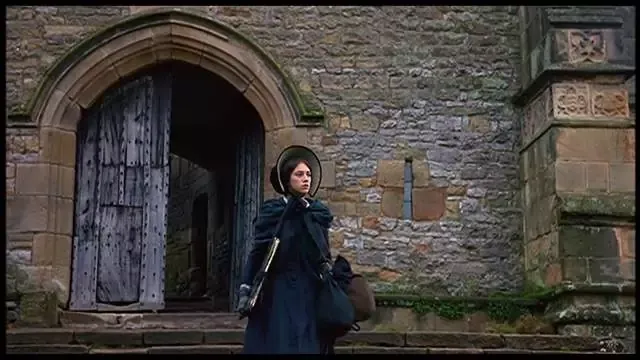
Reason for selling well: Sympathy
A best-selling novel should arouse the sympathy and sympathy of the readers. Jane Eyre’s narrative method is the first person, which can immediately bring the reader and the author into a one-to-one mode, which is the narrative method that most impresses the reader.
Jane Eyre starts with a children’s story, and most of the unfortunate situations encountered by young children will arouse the sympathy of readers.
The protagonist of this book is Jane Eyre, a woman, and the narration begins with Jane Eyre's miserable life. Different reader groups will have different opinions. In the context of this book, most of the readers are women, so Jane Eyre's own story will resonate with the majority of female readers.
The relative description of Mr. Rochester does not arouse too much sympathy, although he is also a very miserable person. At least for me as a woman, I actually didn't pay much attention to Mr. Rochester.
Background, class emphasis, nobility, and the poor
This book was written around 1847. The turning point with the genre of previous literary works is that it is now in the period of romanticism. The so-called romanticism does not mean romance in love, but It means that the works tend to pay more attention to the real-life of people's reality itself.
The literary and artistic works of this period began to reduce the description of religious elements and focused on the individual, and more focused on the characteristics and life of the person himself.
In the West, the concept of hierarchy is very strong. At the beginning of this period, many middle-class women had a lot of free time to read free books. This is the main reader group of Jane Eyre. Because middle-class women are educated, some middle-class men will occasionally read popular novels. Compared with the higher-class people, there are not so many people who read popular novels.
During this period, due to the increase in the number of the middle class, the main readers of literature were middle class, so the description object of literature was mainly middle class. In the middle class, there are also rich and poor, but they all belong to the middle class in terms of class division.
This class division is not determined by money, but to a large extent by race color, and mainly family origin. The status of a woman is determined by the status of the neighboring man. For example, if Jane Eyre is raised by her uncle, then her class will follow her uncle's house. If she goes with the lower relatives, then her class will also become inferior.
As mentioned earlier, the previous novels will describe the love lives of many nobles. Such novels are more idealistic, just like the life of a prince and princess. Due to the changes of the times and the increase of the middle class, the career of the novel has gradually become more suitable for people in real life that is, the middle class like Jane Eyre.
Therefore, the novels of this period began to gradually adopt such a style: novels that are based on the ordinary or down-to-earth middle class and can resonate with readers.
I don't have very strong feelings about race and social class. But Jane Eyre's performance was very strict, and the concept of social class was deeply ingrained in Western countries at that time, and it has continued from that period (earlier).
Although Jane Eyre has no father or mother, is very poor, and lives a life of abuse, she still resolutely said: I will never go to the lower class of poor people to live, I do not want to be a lower class of people. This notion is not just "I don't want to live a poor life", but the pedigree is so strictly imprinted on her body that cannot be disobeyed.
Even after she ran away penniless in the later period, she almost starved to death on the street, and she did not want to be a beggar of the lower class begging for food. Even though she is economically more sluggish than the lower class, her identity is determined to be the middle class. This class concept is very strong.
Racial Superiority
This book touches on the issue of race a little bit, but it is not obvious. From here, we can see Europeans' conception of race and racial superiority since that period.
Race is a characteristic that is unique to birth, cannot be changed, and can be seen at a glance. To put it bluntly, it is the white, black, and yellow race. In Europe at the time, whites were purebreds, and they were very demanding of pure blood.
The division of hierarchy is the same, with white being at the top, and other races going down. The second division criterion is assets. In other words, if a black person is the richest man in the country, but he is a black person, his social status is still lower than that of the poorest white person.
However, one way to change their social class is to get married. So there will be the phenomenon of non-white wealthy women marrying poor people. In fact, it is Jane Eyre, Mr. Rochester, and Bertha's unfortunate marriage. At that time, Rochester could not enjoy the family's property, so in order to get Bertha's money, his family deceived Rochester into marrying Bertha.
Regarding why Bertha, who was rich at the time, married Rochester, who had no money, there were two situations. One was that Bertha had genetic madness, and the other was that Bertha could change her social class through this marriage. This is also a basis for later generations to infer that Bertha is non-white.
In later details, several paragraphs about Bertha also showed such signs. Jane Eyre used adjectives such as "she is white as a vampire, with purple lips..." in her description of Bertha. Later, in Mr. Rochester's portrayal, Rochester describes Bertha as "born so cruel, vulgar, and untenable". This description was later an argument to infer that Bertha is non-white.
Jane Eyre's metaphor of color shows people of color. Rochester's description expresses that inferior races have impure blood and are born with bad natures. Yes, this is outright racial discrimination. But this was also a very popular concept of racial superiority at the time. The superiority of white people is deeply rooted in history.
Religious background, Jane’s religious views
It is impossible to avoid the influence of religion in the inevitable Western literature and artworks. Compared with the era of religious rule, I don't know much about religion. Only two superficial influences can be said here in general.
As mentioned above, the works of this period began to lean towards individualism and reduced the praise of religion. There is also a partial denial of religion in Jane Eyre's book, but it is not obvious.
However, it can be seen that the author Bronte has some opposition to religion. Two religious figures who are important to Jane appear in the book, Helen and St. John. Both of them were very devout believers, but both ended in death. It seems that the author is saying: If you believe too much, you will die. And in the book, Jane’s cousin, Eliza, later also entered the nun's nunnery, which is also an irony of religion.
In this book, there are many sayings about religion. It is also said that God is the center of this book. The main reason is that the description of St. John in the last paragraph at the end of the book is too inexplicable. Perhaps the author wanted to say that if he was too pious, he would die, or perhaps it was Jane’s own prayer to God, asking for forgiveness.
Characters in literary rhetoric, mirrored roles, dual-corresponding characters, contrasts between bright and dark figures
Many classics in the West use mirror-contrasting rhetoric methods. A character corresponds to the image. For example, in Shakespeare's "Hamlet", Hamlet's mother and Ophelia are corresponding images. It's more obvious in Jane Eyre.
Jane Eyre’s two relatives, the Reid’s mother’s family had one boy and two girls, and the boy died. Feather River’s family had one man and two women, and the man died. What's more interesting is that the eldest boy of the two families is named John. Very obvious mutual contrast.
The characters also correspond to each other in terms of character: the three children of the Reid family are of bad character, while the three children of the River family are of noble character. Especially the two Johns formed an extremely sharp contrast. (Perhaps it is not just a comparison, they may represent two sides of a complete person)
In addition, the most exciting mapping is the comparison between Jane Eyre and the madwoman Bertha. It is said that Bertha the Madwoman is actually the dark side of Jane Eyre. Let's recall what happened to each Bertha. Every time Mr. Rochester made Jane Eyre unhappy during the day, Bertha would make trouble late that night. Appeared three times in total, and they were all very responsive, not bad at all.
In other words, although Jane Eyre did not show anger every time Mr. Rochester provoked Jane Eyre, in fact, the dark side of Jane Eyre, Bertha, showed Jane Eyre's anger and came out in the middle night. In fact, Jane Eyre and Bertha also formed a sharp contrast, both in appearance and inwardness, they are two diametrically opposed people. Perhaps it is also different in the race.
End, St. John, HE or BE
Most of the time when I see the end, I think it is a happy ending. But in fact, it is very strange that the last paragraph at the end does describe St. John, and ends with his (similar to atonement) prayer before his death. Isn't it weird and unobtrusive? There is a saying that the author wants to express his negative views on religion.
But there seems to be another argument.
For example, throughout this book is Jane Eyre's first-person first-view world. Why did it suddenly become a description of St. John in the last paragraph? The key is that St. John was not in front of Jane at that time. How did Jane describe it from the first perspective?
It is said that this confession may be Jane Eyre's own confession. Because the happiness she has now is based on Bertha's death. In terms of social factors, she was the one who took the inheritance and was in a leading position in the economy, which also conflicted with the social class at that time.
Another possibility is that the prayer about Saint John was heard by Jane Eyre through the sixth sense. This supernatural phenomenon has appeared many times in the book.
Spiritual Phenomenon of Gothic Novel Style
Gothic novels mainly refer to supernatural phenomena the novels. This style was very popular at the time, such as ghosts and vampires. The same is also used a lot in Jane Eyre. Since Jane Eyre was locked up in the Red House when she was young, she said she saw ghosts.
Listen to Bessie talk about the omens of dreaming about a child's dream. There are also dreams of the night when I lived in Rochester, about Bertha's supernatural phenomena (including allusions to ghost stories in the old castle).
Although many have been resolved and answers. But there is no solution. For example, in the last part, Jane Eyre heard Mr. Rochester calling her name far away, and after Jane answered immediately, Mr. Rochester, who was thousands of miles away, also heard it.
This is an unresolved supernatural phenomenon. However, it also explains how the prayer of St. John appeared in the last paragraph. Perhaps it was also spread to Jane's ears from thousands of miles away.
The above analysis is to remove the background factors and historical value other than the superficial story. What were the ideologies of the people at that time, the composition of society at that time, and the trend of literature and art?
And various applications in literary rhetoric. These have created the special value of Jane Eyre, not just telling an intricate story.
Quotes from Jane Eyre with page numbers
Reading Notes (Page number: page 321)
"Do you think that because I am poor, humble, not beautiful, and short, I have no soul and no heart? You are wrong! My soul is the same as yours, and my heart is exactly the same as yours. If God grants My wealth and beauty, I will make it difficult for you to leave me, just as it is difficult for me to leave you now! If God grants me a little beauty and a little wealth, I will make you feel hard to leave me, just like I am hard to leave you now. I am talking to you now, not through customs, conventions, or even through mortal bodies—but my spirit is talking to your spirit; it’s like two of them have passed through the grave, and we are standing in front of God’s feet. Equal-because we are equal!"——Jane Eyre
Then you are wrong, you don't understand me at all, don't understand the kind of love I can have at all. Every atom in your flesh is as close to me as my own; it is in pain, but it is still close. Your heart is my treasure house, even if it is broken, it is still my treasure house; if you go crazy, it will be my arm instead of the tight-fitting vest that restrains you—let you hold on tightly, even in your When I am angry, I always feel a charm... ——Jane Eyre said to Rochester
When we are beaten for no reason, we should fight back fiercely; I'm sure we should fight back fiercely, to teach the person who beat us, so that he will never dare to beat people like this again. ——Jane Eyre who dares to love and hate
Some people, no matter how I please them or hate me, then I can't help but hate them; some people, give me unfair punishment, then I can't help but resist. This is natural. Just as some people love me, I love them, or when I feel that I deserve to be punished, I will be punished willingly.——Jane Eyre with clear love and hate.
Human nature is such that it cannot be perfect! Even on the brightest planet, there will be such black spots; and Miss Sketchel's eyes can only see the small flaws, but can't see the star's radiant light.——Jane Eyre
In my opinion, life is too short to remember hatred. In the human world, all of us have sinned, and it is impossible not to be so; but I believe that one day, we will be freed from our rotten bodies, and we will be free from these sins, and depravity and sins will follow us. The cumbersome body of flesh and blood leaves us, leaving only the spark of the spirit—the intangible principles of life and thought, as pure as when it left the Creator to give life to all things; where did it come from and where did it go back? ; Maybe it has entered into a higher creature than humans—maybe ascend according to the taste of glory, from the pale human soul to the bright archangel! ——Helen said
Your enemies must love them; those who curse you must bless them; those who hate you and insult you must treat them well.——Helen quoted from "Bible · New Testament · Luke."
Even if people all over the world hate you and believe you are bad, as long as you have a clear conscience, you will not be without friends.——Helen to Jane Eyre.
